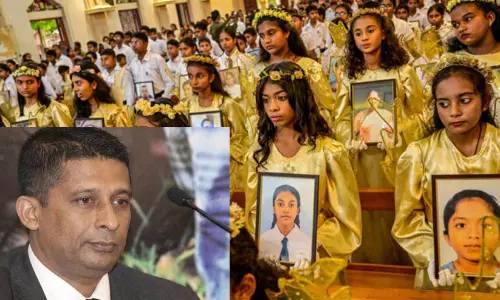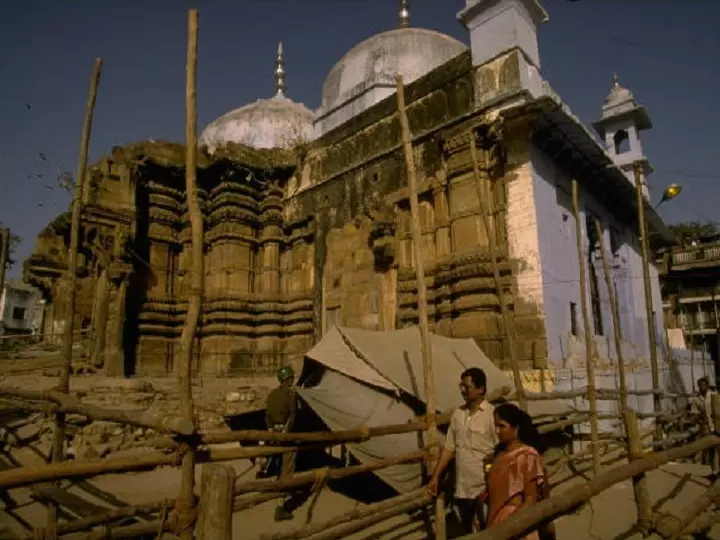
Is Gyanvapi Masjid following Babari Masjid fate? Where does the case stand now?
text_fieldsGyanvapi Masjid.
The disputes and arguments surrounding the Gyanvapi mosque in UP's Varanasi get more complex with the emerging conflicting reports following a videographic survey held by a commission appointed by a Civil court.
Because the case is so complex, and sensitive in both religious and civil suit aspects, the Supreme Court observed that the pending trial and all interlocutory and ancillary proceedings should be heard by a senior and experienced judge from the state's higher judiciary, hence the case has been transferred to District Court.
But the lawyers representing the mosque committee have some arguments over the entire proceedings initiated by the Varanasi Civil court, from ordering a videographic survey and sealing the area where a purported discovery of a material, later called to be a shivling ,to referring it to the Places of Worship (Special Provisions) Act, 1991.
Senior Advocate Huzefa Ahmadi, appearing for the Committee of Management of Anjuman Intezamia Masjid, Varanasi, argued that the proceedings initiated by the Civil court against a civil suit filed by five women who wanted to be allowed to worship in the Mosque premises where they believe situated 'Shringar Gauri Sthal', are the violation of the Act.
He pointed out that the 1991 Act prohibits any move that alters the status quo of a place of worship that has been found to have existed so in 1947. Thus, in the case of the Gyanvapi mosque which has been there as a mosque for 500 years and was not in a dispute in 1947, the Varanasi court's order to seal the wuzu khana, where the ablution before Namaz takes place and where the alleged shivling was discovered, was akin to altering the religious character of the mosque, Ahmadi said.
Ahmadi also contended the very appointment of a commission to find relics relating to another religion, citing the 1991 Act. He appealed to the Apex court that the proceedings initiated by the Civil court in Varanasi should be declared as void.
Ahmadi said that the 1991 Act intends to protect the religious nature of the places of worship which belonged to different religions in the country and if such proceedings are entertained disregarding the very intention of the Act, the disputes and controversy will remain unsolved in a country where such relics can be found from a large number of places, which could be once a Hindu temple, Buddhist temple, Jain temple or Vaishnavite temple.
Precisely, the Act wanted such controversies over the religious places to be interdicted and should not be allowed to prosper, Advocate Ahmadi said.
The Supreme Court bench, comprising Justices D Y Chandrachud, Surya Kant and P S Narasimha, that heard Ahmadi's argument ordered the District Court to hear the Mosque committee first.
The bench also wanted the District court to ensure that there shall be no obstructions and obstacles for Muslims in accessing the mosque and offering prayers, while declining a plea for releasing the secured area. The Supreme Court bench also urged the District Magistrate to make sure adequate arrangements for ablution and religious observance are made in the mosque, while the pond where the purported idol has been found should remain sealed.
Meanwhile, the Supreme Court bench has a different opinion over Ahmadi's arguments in regard to the maintainability of the status quo of the religious structure as per the 1991 Act; it said that there are various nuances of the Act that have to be considered when such a sensitive matter is dealt with.
Objecting to Ahmadi's arguments, Justice Chandrachud said that the provisions of Sections 3 and 4 of the 1991 Act do not bar the ascertainment of the religious character of a place of worship. Thus, the trial proceedings can be resumed on the base of evidence, he added.
Taking into consideration the concerns expressed by Advocate Ahmadi over certain leaks of the Advocate Commissioner's report, Justice Chandrachud said that the parties concerned with the report should ensure there are no selective leaks of the report and must stop leaking reports to the press.
Justice Chandrachud also stressed the importance of maintaining fraternity and sense of balance within the nation and expressed hope that the apex court's interim order will bring a sort of calm for some frayed nerves on both sides,
What does the Places of Worship Act, 1991 say?
It was during the Congress regime under the Prime Minister P.V. Narsimha Rao the Places of Worship Act was passed in 1991. The Act was necessitated when the issue Ram Mandir movement was burning. The Act clearly prohibits the conversion of places of worship to other religious places and mandates maintaining the religious nature of a place of worship as it was on August 15, 1947, except the Babri Masjid, which was subjudice at the time.
Section 3 of the Places of Worship Act, 1991 says "no person shall convert any place of worship of any religious denomination or any section thereof into a place of worship of a different section of the same religious denomination or of a different religious denomination or any section thereof."
Section 4(1) of the 1991 Act declares: "…the religious character of a place of worship existing on the 15th day of August 1947 shall continue to be the same as it existed on that day."
Section 4(2) states: "If, on the commencement of this Act, any suit, appeal or other proceeding with respect to the conversion of the religious character of any place of worship, existing on the 15th day of August 1947, is pending before any court, tribunal or other authority, the same shall abate, and no suit, appeal or other proceeding with respect to any such matter shall lie on or after such commencement in any court, tribunal or other authority."
The Supreme Court will hear the Gyanvapi Mosque case next in the second week of July.























